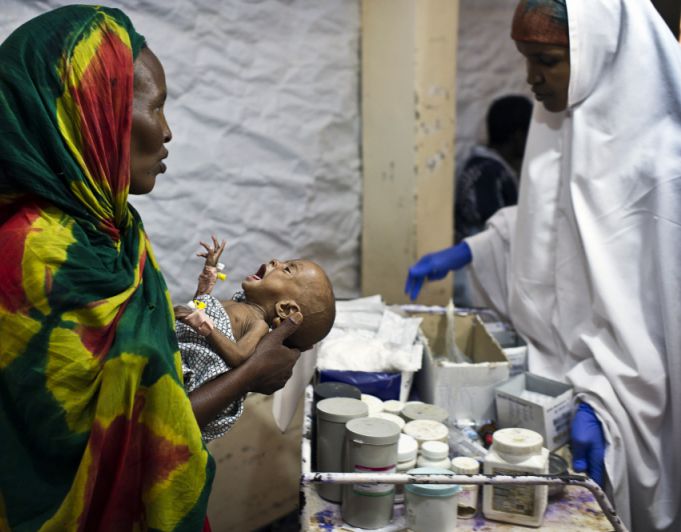By: Emma Brown
Send to a friend
The details you provide on this page will not be used to send unsolicited email, and will not be sold to a 3rd party. See privacy policy.
Children with acute malnutrition should not routinely receive antibiotics — as is currently recommended by the World Health Organization to prevent infection — according to a study.
The study, published in The New England Journal of Medicine earlier this month (4 February), found that undernourished children receiving care outside a hospital do not benefit from routine courses of oral antibiotics. The researchers monitored more than 2,000 children treated at four rural health centres in Niger for malnutrition.
“Malnutrition doesn’t look the same everywhere. How we treat it and how we deal with it may need to be contextualised.”
Rebecca Grais, Epicentre
It found that there was no significant difference in recovery success between two groups of children. One group received a course of the antibiotic amoxicillin, while the other received a placebo.
The WHO currently recommends that children receiving treatment for uncomplicated but severe malnutrition should also receive a course of oral antibiotics.
Due to the risks of hospital-acquired infections and other immune deficiency-related complications, “there can be this vicious cycle between [severe acute malnutrition] and infection”, says Rebecca Grais, coauthor of the study and a research director at Epicentre, an epidemiological research centre associated with medical charity Médecins Sans Frontières.
Regardless of whether or not they received an antibiotic, more than 60 per cent of children treated at home recovered within eight weeks, the study found. As a result, Grais and her colleagues say the policy should be removed for children treated at home to counter growing antibiotic resistance and cut medication costs.
“Malnutrition doesn’t look the same everywhere. How we treat it and how we deal with it may need to be contextualised,” says Grais. Factors such as local healthcare capacity and the presence of other unrelated illnesses such as HIV/AIDS must also be considered when deciding whether to administer antibiotics, she says.
But not everyone agrees that the WHO policy should be dropped entirely. For example, research conducted in Malawi in 2013 studied children suffering from a different type of severe acute malnutrition. It found a significant improvement in recovery rates with antibiotics.Because of a lack of infrastructure and human resources in some areas, to say that children with this disease “should not receive antibiotics is very dangerous and will lead to the deaths of many children around the world”, says Indi Trehan, a paediatrician based at Washington University in St Louis, United States, and lead author of the Malawi study.
A WHO spokesperson echoed Trehan’s concerns, saying that the use of preventive antibiotics remains important in many poor countries as resources are not available to treat infections once they occur.
References
[1] Sheila Isanaka and others Routine amoxicillin for uncomplicated severe acute malnutrition in children (The New England Journal of Medicine, 4 February 2016)
[2] Indi Trehan and others Antibiotics as part of the management of severe acute malnutrition (The New England Journal of Medicine, 31 January 2013)














